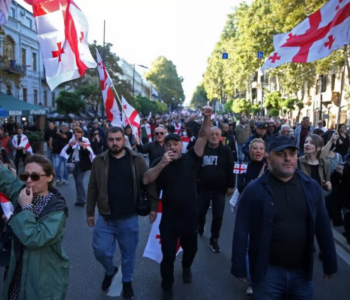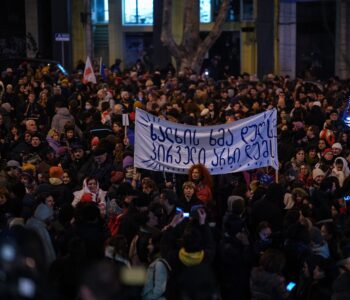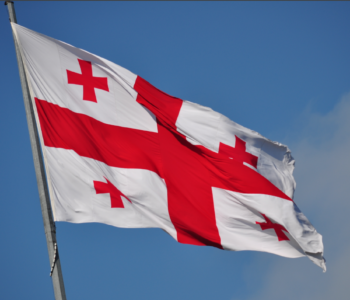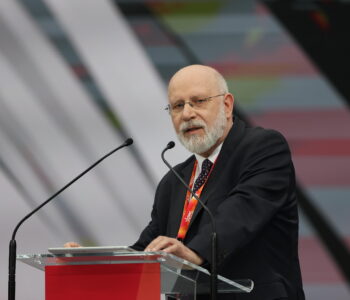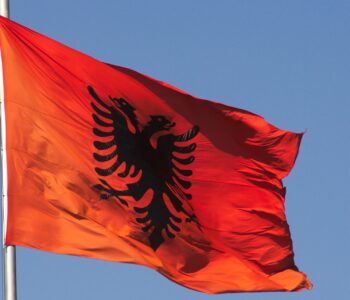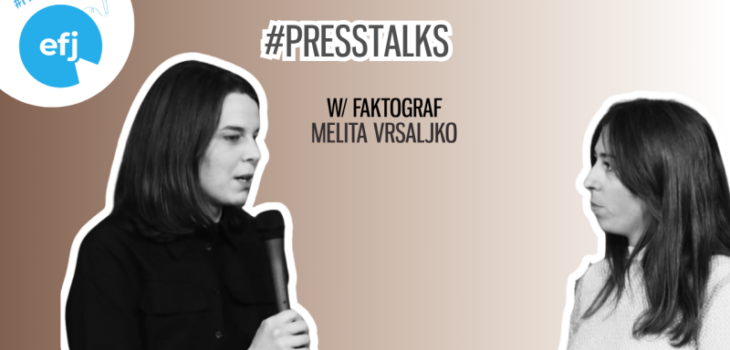
Croatia: EFJ condemns court convicting assaulted journalist Melita Vrsaljko of ‘disturbing public order’
On 7 November 2025, Croatian journalist Melita Vrsaljko, a contributor to Faktograf and Klimatski portal, was found guilty by the Municipal Court in Zadar, of disturbing public order after defending herself from a physical attack that occurred in July 2024 while she was reporting on illegal waste dumping. The European Federation of Journalists (EFJ) joins its affiliates in Croatia — SNH and HND — and the SafeJournalists Network (SJN) in condemning this ruling, which sets a dangerous precedent for press freedom and Croatian journalists.
13.11.2025
The attack dated back to 15 July 2024, when Melita Vrsaljko was assaulted in the village of Nadin, along with her camera operator. The perpetrator, an elderly man who was reportedly drunk, admitted he intended to prevent them from filming on a public street. In response, the police issued an order for both to maintain a distance of at least 50 metres away from each other. Vrsaljko reportedly had no choice but to act in self-defence to get rid of her attacker and to call the police for assistance. The following day, the attacker’s daughter strangled Vrsaljko at her home, attempting to force her to delete footage recorded of the aggression committed by her father.
In an interview for the EFJ podcast PressTalks, which was recorded at the 2025 Voices Festival in Zagreb, Vrsaljko bravely recounted both attacks and her fight for justice. “Much more painful are the scars in my head”, and “feeling not safe in my own house,” the journalist told us. Vrsaljko is in the process of filing an appeal.
“By ruling Vrsaljko equally guilty of disturbing public order as her initial attacker, the Zadar Municipal Court judge Maria Stopfer Mišetić sends a deeply concerning message regarding journalists’ safety, particularly in local communities where journalists are more easily identifiable and consequently more vulnerable to violence,” stated EFJ President Maja Sever.
Earlier this year, Vrsaljko faced another instance of violence. She was assaulted and subjected to misogynistic insults at a local festival in Benkovac.
From the outset, the EFJ and its Media Freedom Rapid Response (MFRR) partners have denounced flaws in the police response and the legal classification of offences in Vrsaljko’s case. As assessed during our fact-checking missions to Croatia, the authorities considerably failed to classify the two related incidents as criminal offences. As a result, the incidents were excluded from government safety protocols jointly signed by the Ministry of the Interior, HND, and SNH, and established to enhance journalists’ safety.
Furthermore, the Municipal State Attorney’s Office in Zadar has yet to issue a decision on the criminal complaint filed more than a year ago for the assault by the perpetrator’s daughter.
Discussions with the Croatian Ministry of Culture and Media, Ministry of Justice, and Ministry of the Interior have raised additional concerns, as officials questioned the link between the attacks and her journalistic work, despite clear evidence that she was targeted for her reporting.
Journalists, and in particular women journalists, in the Balkan region are working in an increasingly hostile environment, where gender-based harassment and attacks are on the rise.
The EFJ urges the judiciary to reconsider its ruling and requests that the authorities ensure the journalist’s professional activity is duly considered from the initial incident through to the court’s final ruling. We also call on the Zadar Municipal Court to rule without further delay on the criminal complaint filed for the second attack.
Listen to the story of Melita Vrsaljko in the EFJ podcast PressTalks available on Spotify and YouTube.
This statement was coordinated by EFJ as part of the Media Freedom Rapid Response (MFRR), a Europe-wide mechanism which tracks, monitors and responds to violations of press and media freedom in EU Member States and Candidate Countries.



